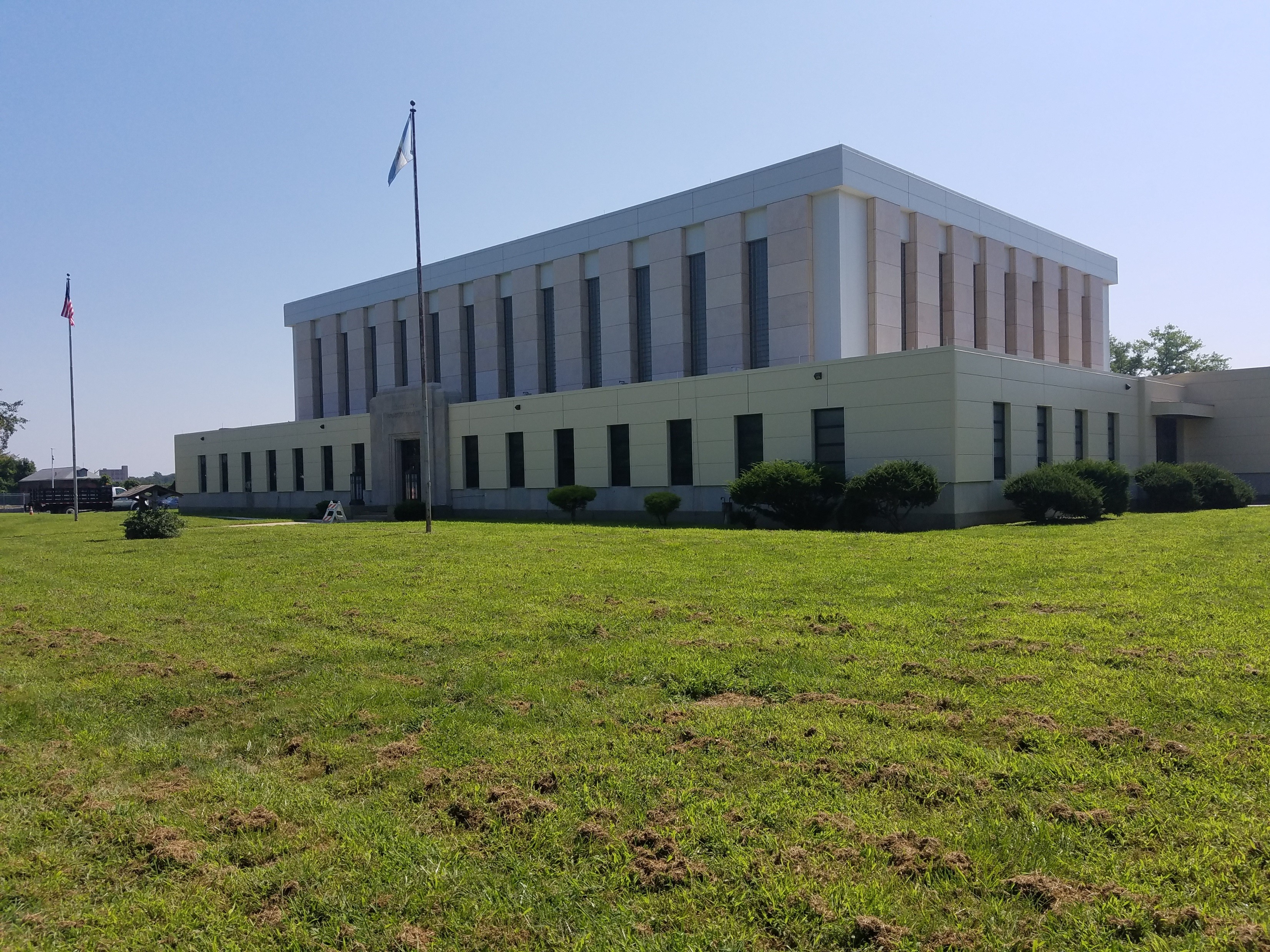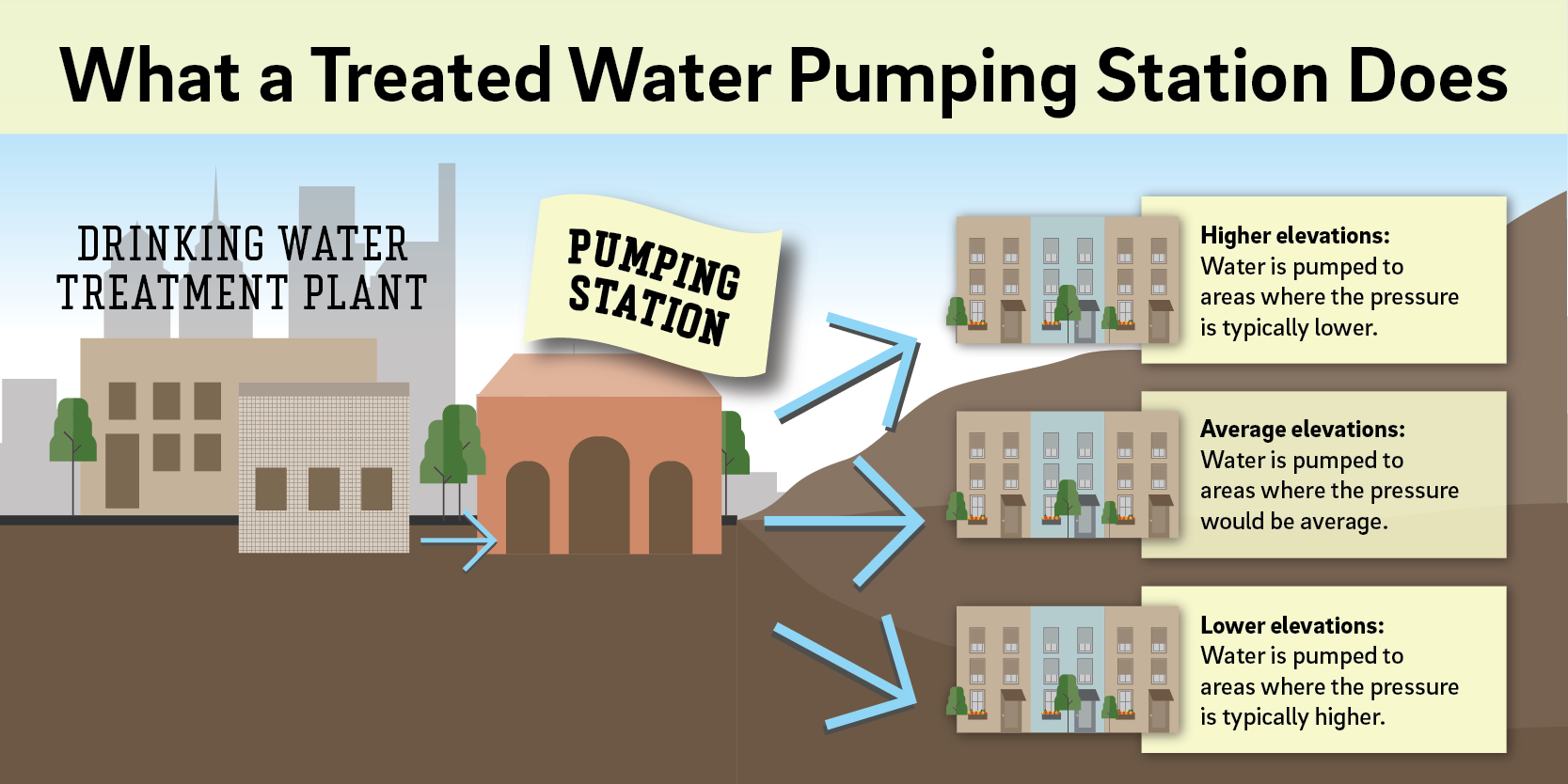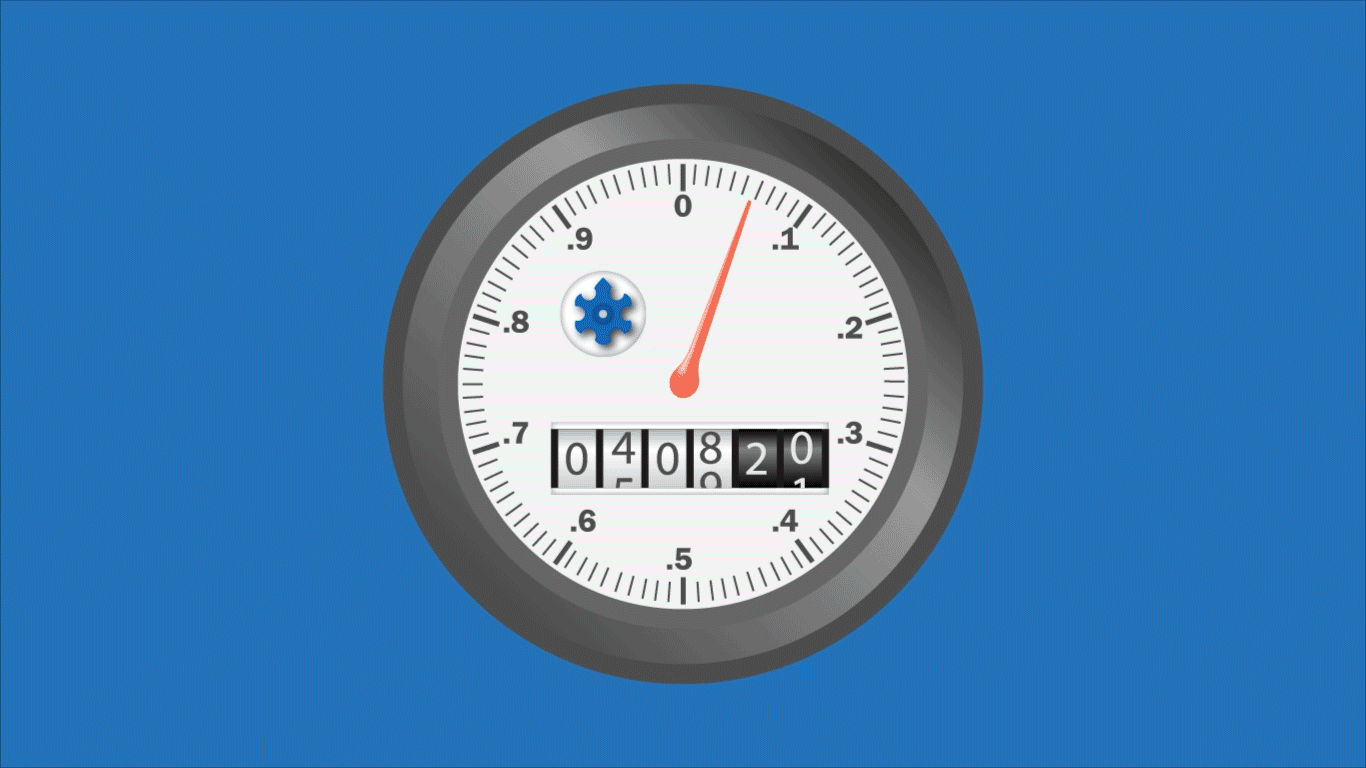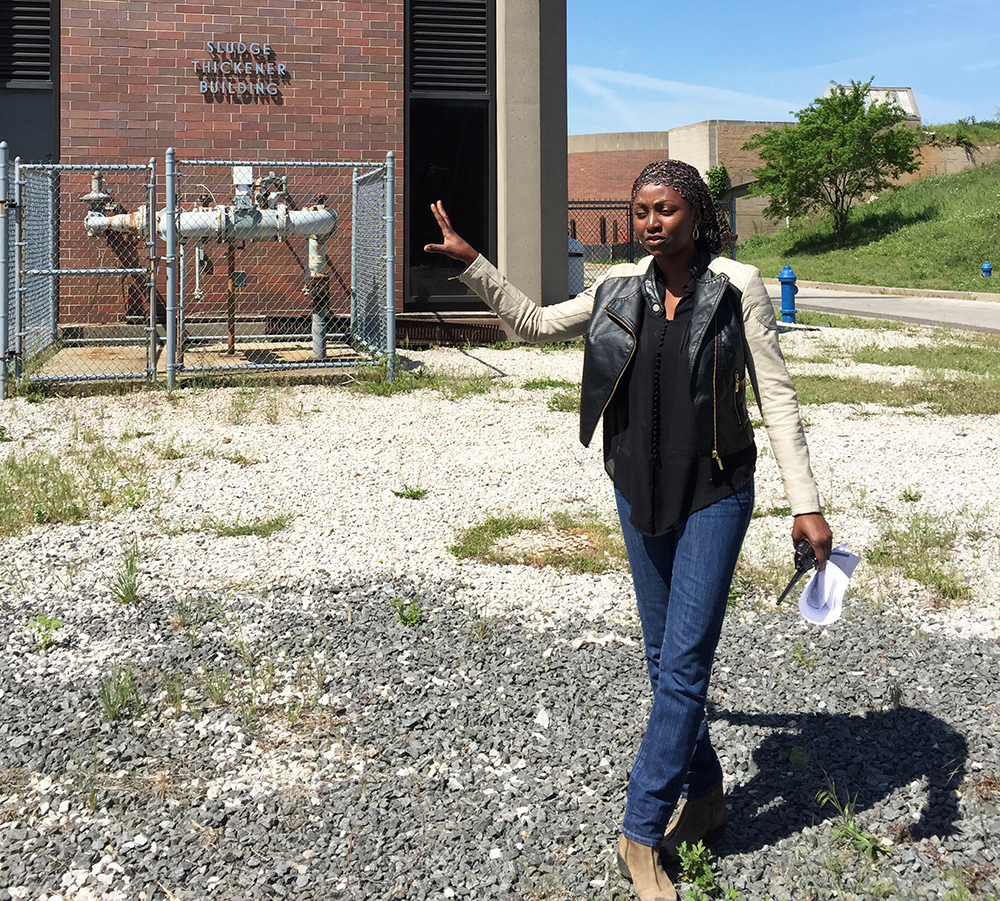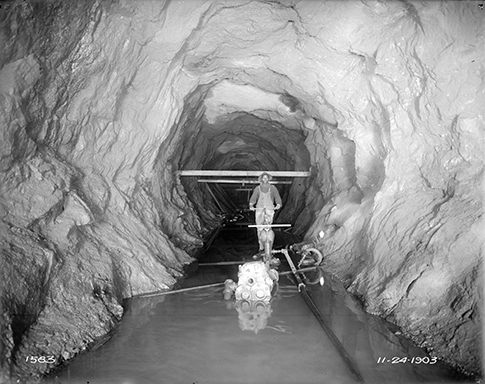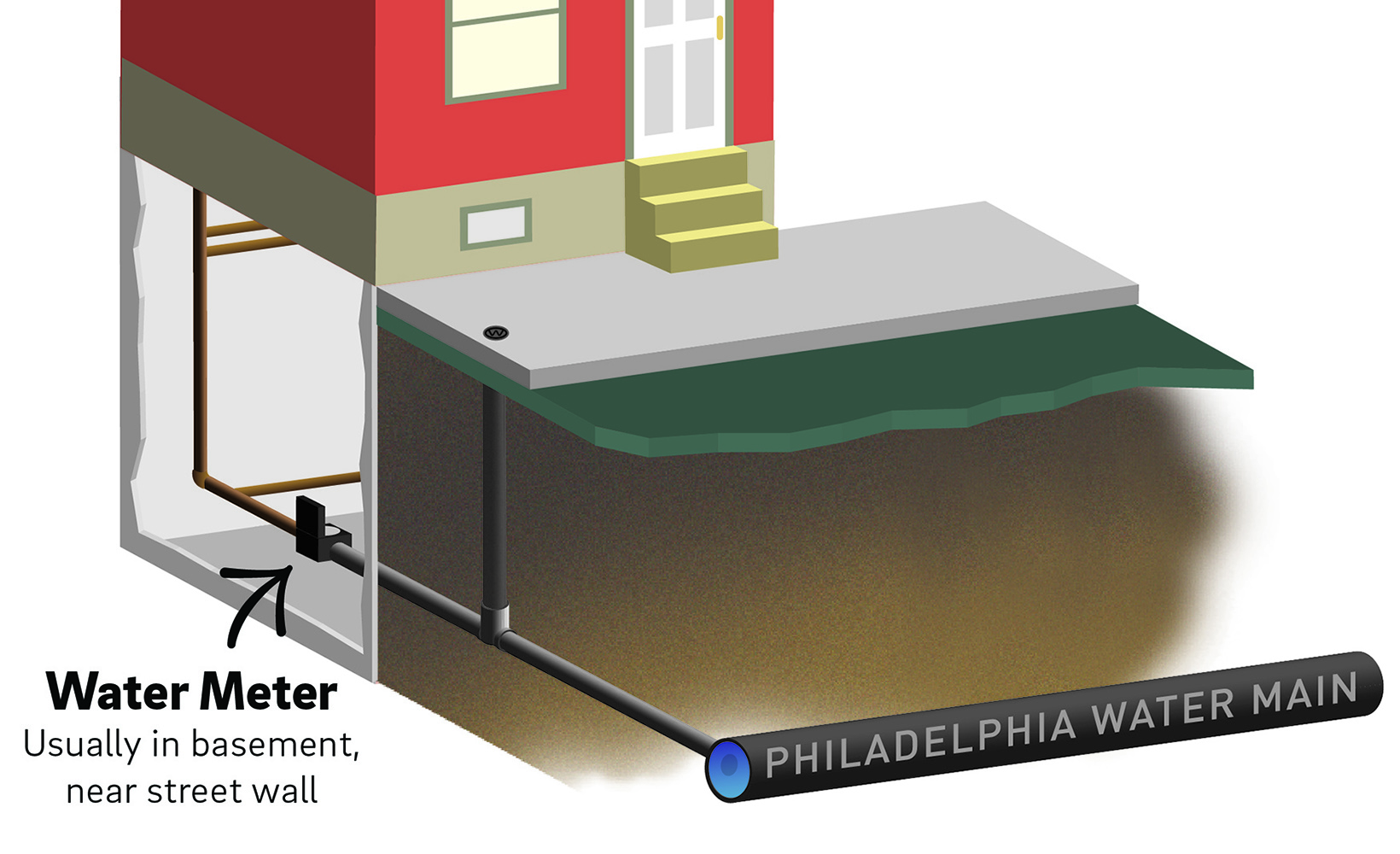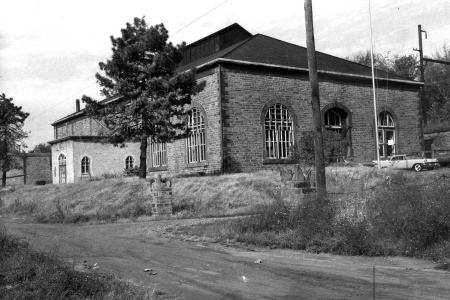Our largest pumping station—the Torresdale Filtered Water Pumping Station—is about to get its biggest makeover since it was constructed more than 70 years ago, and we're highlighting the project during the week-long United For Infrastructure #RebuildBetter campaign.
A long-serving hub of infrastructure, the Torresdale Filtered Water Pumping Station supplies nearly one quarter of the city with millions of gallons of clean drinking water each day.
Reconstruction at Torresdale will result in direct health and safety benefits by increasing reliability for water customers and critical facilities, including hospitals helping Philadelphia weather the pandemic.
The pumping stations serves the city by moving water that has been treated at the Delaware River’s Baxter Water Treatment Plant. Overall, Baxter treats about 60 percent of Philadelphia’s water. Combined with output from the Schuylkill River’s Queen Lane and Belmont treatment plants, we provide an average of more than 200 million gallons of high quality water per day.
Torresdale is one of more than a dozen pumping stations working around the clock to ensure water is delivered at an adequate pressure and can reach every building and fire hydrant in the city.
“We are deeply committed to the safety and integrity of our water system and will continue to make these strategic investments to our infrastructure. We are pleased to work with partners like PENNVEST on projects that will improve access to clean water for our residents and business”
— Philadelphia Water Department Commissioner Randy E. Hayman
A steam-powered pumping station designed to draw untreated, raw water from the Delaware was first erected at the site of the Torresdale facility in 1907. The facility being upgraded now, the Torresdale Filtered Water Pumping Station, was built in the late 1940s to move treated drinking water, with news reports hailing the investment and multi-year construction.
The $73.35 million overhaul is funded by a low-cost loan. It represents the biggest investment in the station since 1949. The loan was awarded by the state-run Pennsylvania Infrastructure Investment Authority, PENNVEST.
Improvements include:
- Installation of 14 new state-of-the-art pumps that will help distribute clean water around the city
- Advanced flow meters that will help increase and ensure efficiency
- New electrical controls and equipment allowing for more precise operation of the system
The Vision: Improve Reliability, Streamline Maintenance
The driving force behind the upgrade is a never-ending push by PWD engineers and planners to improve reliability in the delivery of drinking water while streamlining maintenance.
“Much of the upgrade involves spreading different size pumps into quadrants to increase flexibility, from an operations standpoint,” Water Conveyance System Superintendent Bill Neary said. “The goal is to make it so you can take one pump out of service, fix it and never miss a beat in terms of delivering water.”
He has been working there since 1982 and is set to retire next year, after nearly four decades of service.
Thanks to Superintendent Neary’s technical and operational input into our comprehensive Drinking Water Master Plan, however, his work will continue to shape Philadelphia Water Department infrastructure for decades to come – some of the projects he is helping to plan for won’t even break ground until the 2030s.
Investments like the one being made at Torresdale are “all about reliability and looking well into the future,” said Superintendent Neary.
This is an upgrade that will allow us to reduce risk and increase reliability. There is a lot of risk in taking pumps out of service to work on them, as you decrease the number of units available to meet the daily water demand.
“Typically, when you do an upgrade to a facility like this, your hope is to get 25-30 years out of that investment before you have to go back in. With this project, we are looking to get 50-60 years of life out of the upgrade.” — Water Conveyance System Superintendent Bill Neary
Rather than taking multiple critical pumps out of service under certain conditions, this modernization allows PWD to make the pumping station more modular, limiting risk.
Simply put: we’ll be able to do maintenance and keep things running.
Superintendent Neary said that planning reliability upgrades around more efficient maintenance can often cost more up front, but saves PWD money over the long haul because it means the investment can last decades longer.
A Record-Setting Investment
PENNVEST announced the loan for this complex modernization project in April 2020 as part of a $116 million investment in water infrastructure throughout the commonwealth.
The funding represents the third-largest award ever granted since the infrastructure funding organization launched in 1988. The offer is part of PENNVEST’s Drinking Water State Revolving Fund program, which is backed by the federal Environmental Protection Agency, through a Safe Drinking Water Act provision.
With COVID-19 budget impacts potentially postponing many projects outlined in our Drinking Water Master Plan, the funds come at an especially timely moment.
PWD worked with a broad team of City partners to apply for the funding in early 2020.
“The application required careful coordination between teams at PWD’s Engineering Division, City of Philadelphia Finance (Central Finance and Treasurer’s Office) and PWD Finance,” said PWD Deputy Commissioner of Finance, Melissa LaBuda. “This effort was a true team effort by the City.”
Construction could begin as early as summer 2021.
